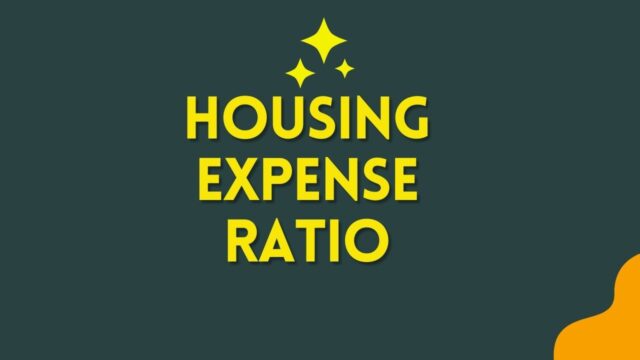
What is the housing expense ratio and why is it important
The housing expense ratio is a key metric used by lenders to determine whether a borrower can afford a loan. The ratio is calculated by dividing the monthly mortgage payment by the monthly income. A high ratio indicates that the borrower is using a large portion of their income to make mortgage payments, which may make it difficult to make other debt payments or cover unexpected expenses.
As a result, borrowers with high ratios may be seen as higher-risk and may be more likely to default on their loans. For this reason, it is important for borrowers to understand their housing expense ratios and take steps to keep them low. There are a number of ways to do this, such as making a larger down payment, choosing a less expensive home, or refinancing into a lower interest rate loan. Understanding the importance of the housing expense ratio can help borrowers make smart financial decisions and avoid falling into financial difficulty.
How to calculate your housing expense ratio
To calculate your housing expense ratio, simply take your monthly housing expenses and divide them by your monthly income. For example, if your monthly housing expenses are $1,500 and your monthly income is $5,000, then your housing expense ratio would be 30%. As a general rule of thumb, you should aim to keep your housing expense ratio below 28%. However, this figure will vary depending on factors like the type of loan you’re using and your overall debt level. By understanding your housing expense ratio, you can ensure that you’re making a wise financial decision when it comes to buying a home.
What the housing expense ratio means for you
Your housing expense ratio can have a major impact on your financial health. If you are spending a large portion of your income on housing, it can be difficult to save for other things, like retirement or a rainy day fund. Additionally, if your housing costs are consuming too much of your budget, it could put you at risk of foreclosure or eviction if you fall behind on payments. Therefore, it’s important to be mindful of your housing expense ratio and make sure that it is sustainable for your current financial situation.
How to improve your housing expense ratio
Your housing expense ratio is the percentage of your monthly income that you spend on housing expenses. This includes your mortgage or rent payments, property taxes, and insurance. A high housing expense ratio can put a strain on your finances, so it’s important to keep it as low as possible. There are a few simple ways to do this:
1. Make a budget: The first step is to get an idea of what your monthly income and expenses are. This will help you identify areas where you can cut back on spending in order to free up more money for your housing expenses.
2. Shop around: Don’t just accept the first mortgage or rental rate you’re offered. Shop around and compare rates from different lenders or landlords in order to get the best deal possible.
3. Get creative: If you’re struggling to afford your current housing situation, get creative and look for alternative solutions. Can you downsize to a smaller home or apartment? Are there any roommates you can get? Could you move to a less expensive area?
By following these simple tips, you can lower your housing expense ratio and ease the strain on your finances.
The importance of understanding the housing expense ratio for financial success
Many people dream of owning their own home, but the reality is that homeownership comes with a lot of financial responsibilities. One of the most important things to understand before buying a home is the housing expense ratio. This is the percentage of your income that goes towards paying your mortgage, property taxes, and other housing-related expenses. A good rule of thumb is to keep your housing expense ratio below 28%. This will help ensure that you can afford your mortgage payments without putting too much strain on your finances.
Additionally, it’s important to remember that your housing expense ratio will likely change over time as your income and property values fluctuate. As such, it’s important to monitor your financial situation on a regular basis to make sure that you are still in good shape. By understanding the importance of the housing expense ratio, you can help set yourself up for financial success.


































